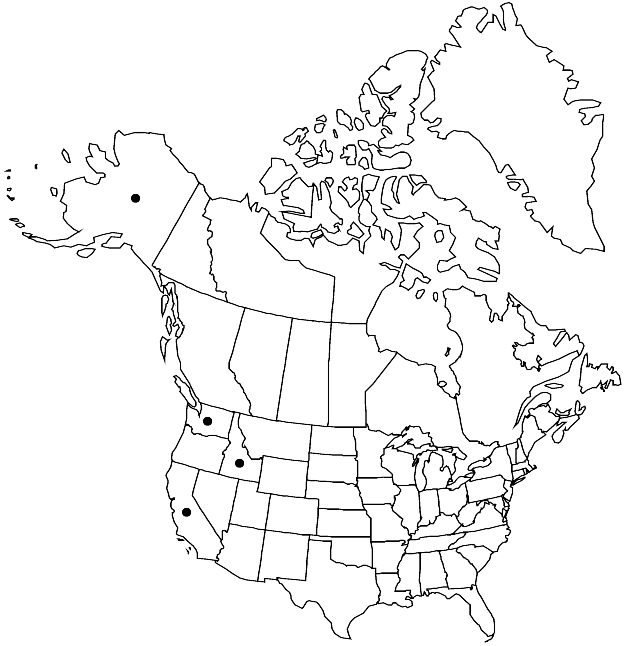Pseudoleskea saviana
Beih. Bot. Centra l bl. 48(2): 499. 1931.
Plants small to medium-sized, in thin open to thick mats, green or yellow-green. Stems with branches robust, julaceous, apices curving up; central strand present; paraphyllia many, filamentous to foliose, not branched. Leaves appressed to somewhat erect when dry, erect-spreading when moist, glossy or dull, ovatelanceolate to lanceolate, asymmetric, ± falcate, 0.9–1.2 mm; margins strongly and broadly recurved to acumen; apex abruptly and slenderly long-acuminate, hairpoint absent; costa subpercurrent to percurrent, green to yellow-green, sometimes sinuate; alar cells transversely elongate to quadrate, region large; medial laminal cells elongate-rhomboidal to fusiform or somewhat vermicular, to 25 µm, 3–4: 1, opaque, strongly prorate to near base, walls firm to incrassate, not pitted; juxtacostal cells somewhat longer than more distal cells, walls not pitted. Capsule erect to suberect, symmetric, 1–1.5 mm; endostome basal membrane 1/3 exostome length, segments shorter than exostome, cilia absent or rudimentary. Spores 12–17 µm.
Phenology: Capsules mature spring–summer (May–Aug).
Habitat: Base of tree trunks, boulders, outcrops, soil
Elevation: moderate to high elevations (600-2500 m)
Distribution

Alaska, Calif., Idaho, Wash., w Eurasia
Discussion
Pseudoleskea saviana is found at moderately high elevations, descending to somewhat lower elevations in the northern portion of its range, and in Alaska the species is known only from the Aleutian Islands. The species is characterized by the strongly recurved margins to near the acumen, the relatively long, slender medial laminal cells, the somewhat longer proximal juxtacostal cells, and an acumen that is often as long as the rest of the lamina.
Selected References
None.
Lower Taxa
"subpercurrent" is not a number."shorter" is not a number."broad" is not a number.